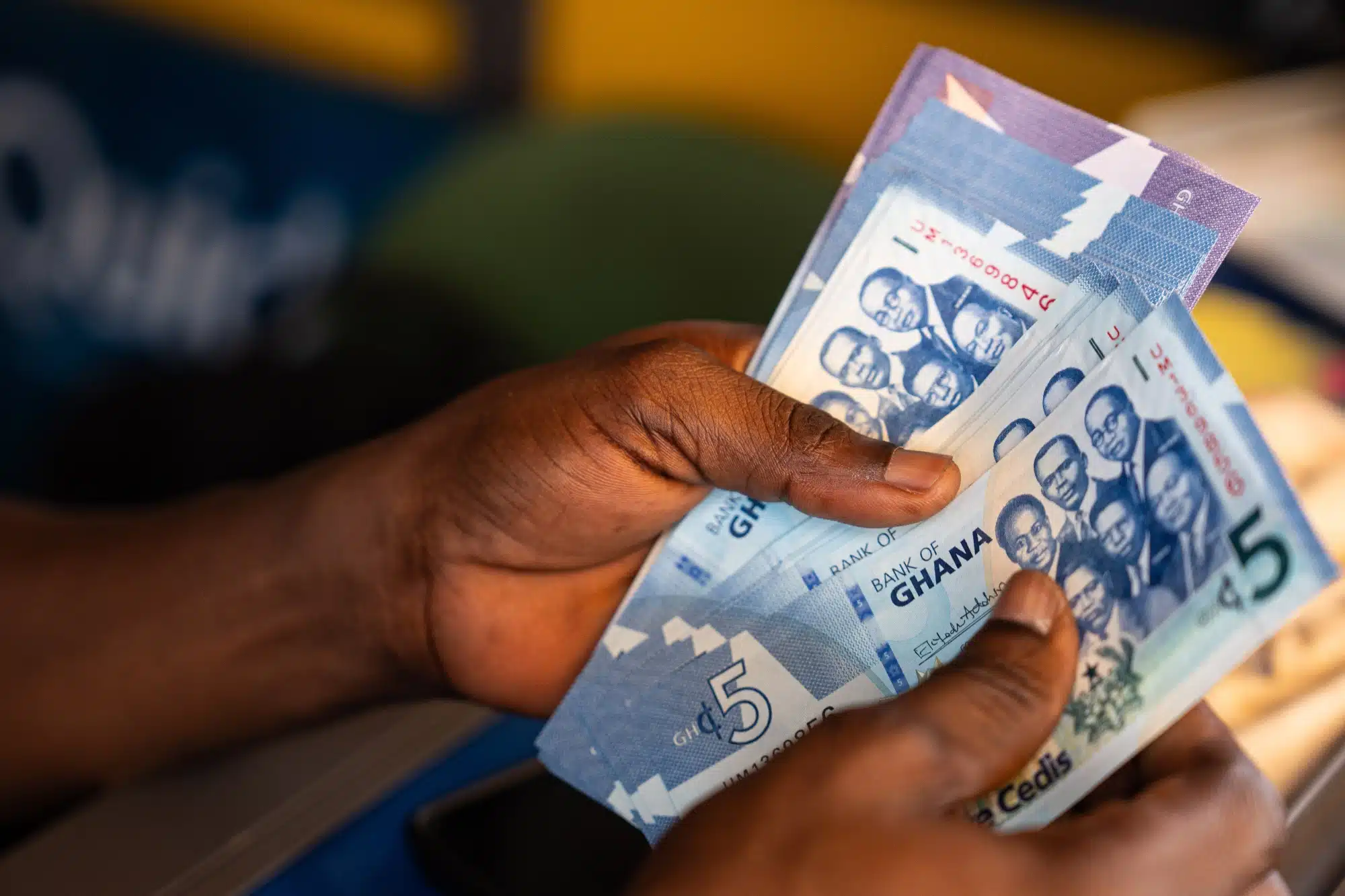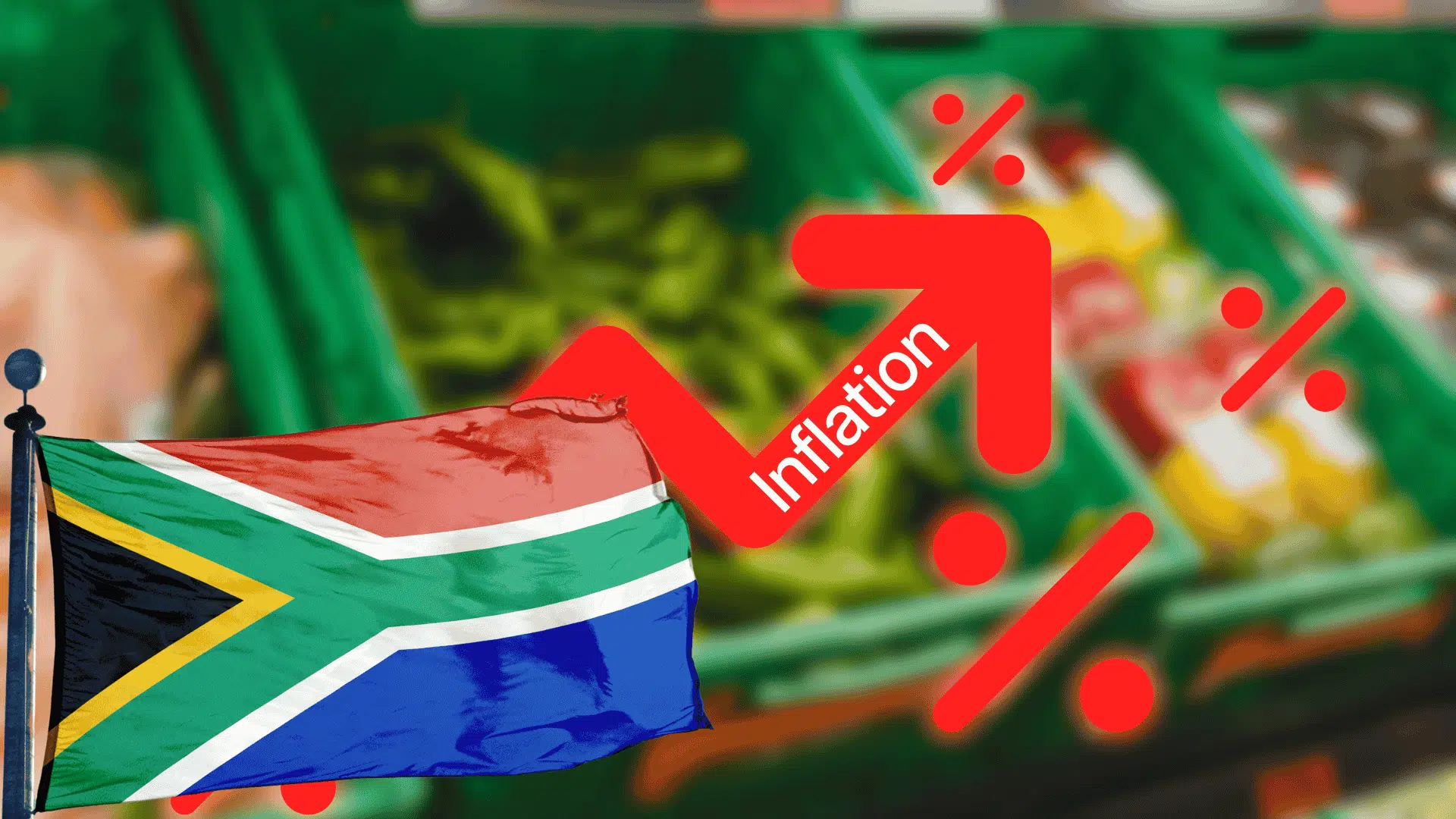Economy
Zimbabwe walks away from $367M US Health Pact over sovereignty threat
Author
-
Paul Chinedu is a financial writer and business analyst passionate about the intersection of the global economy and Africa. He examines how global trends impact African nations, providing insights that make complex economic issues accessible to all. Through his work.
Paul aims to foster awareness and dialogue about the challenges and opportunities shaping Africa’s future.
Author
-
Paul Chinedu is a financial writer and business analyst passionate about the intersection of the global economy and Africa. He examines how global trends impact African nations, providing insights that make complex economic issues accessible to all. Through his work.
Paul aims to foster awareness and dialogue about the challenges and opportunities shaping Africa’s future.
IMF disburse $33 million to Burkina Faso under ECF arrangement
Author
-
Newman Blessing is a finance and economic affairs writer passionate about Africa’s macroeconomics and capital markets. With a background in research analysis, audit and policy management, she brings technical depth to her reporting—grounding analysis in financial systems and fiscal accountability.
She is committed to translating complex financial developments into clear, data-driven insights that help investors, business leaders, and policy-conscious readers understand both risks and opportunities. She also does extensive research on emerging sectors shaping long-term growth across the continent.
Outside of her work, she enjoys good movies and travelling to new places.
Author
-
Newman Blessing is a finance and economic affairs writer passionate about Africa’s macroeconomics and capital markets. With a background in research analysis, audit and policy management, she brings technical depth to her reporting—grounding analysis in financial systems and fiscal accountability.
She is committed to translating complex financial developments into clear, data-driven insights that help investors, business leaders, and policy-conscious readers understand both risks and opportunities. She also does extensive research on emerging sectors shaping long-term growth across the continent.
Outside of her work, she enjoys good movies and travelling to new places.
Inside Africa’s $15 billion carbon credit opportunity
Author
-
Majesty is a law graduate, tax enthusiast, and creative writer.
She co-founded the Tax Club at the University of Port Harcourt and served as its pioneer Vice President, creating a platform for students to engage with real-world tax issues. Let’s catch up here.
Author
-
Majesty is a law graduate, tax enthusiast, and creative writer.
She co-founded the Tax Club at the University of Port Harcourt and served as its pioneer Vice President, creating a platform for students to engage with real-world tax issues. Let’s catch up here.
Ghana pays $909 million interest in domestic debt exchange programme
Author
-
Newman Blessing is a finance and economic affairs writer passionate about Africa’s macroeconomics and capital markets. With a background in research analysis, audit and policy management, she brings technical depth to her reporting—grounding analysis in financial systems and fiscal accountability.
She is committed to translating complex financial developments into clear, data-driven insights that help investors, business leaders, and policy-conscious readers understand both risks and opportunities. She also does extensive research on emerging sectors shaping long-term growth across the continent.
Outside of her work, she enjoys good movies and travelling to new places.
Author
-
Newman Blessing is a finance and economic affairs writer passionate about Africa’s macroeconomics and capital markets. With a background in research analysis, audit and policy management, she brings technical depth to her reporting—grounding analysis in financial systems and fiscal accountability.
She is committed to translating complex financial developments into clear, data-driven insights that help investors, business leaders, and policy-conscious readers understand both risks and opportunities. She also does extensive research on emerging sectors shaping long-term growth across the continent.
Outside of her work, she enjoys good movies and travelling to new places.
South Africa inflation eases to 3.5%, but slower cooling clouds rate-cut hopes
Author
-
Newman Blessing is a finance and economic affairs writer passionate about Africa’s macroeconomics and capital markets. With a background in research analysis, audit and policy management, she brings technical depth to her reporting—grounding analysis in financial systems and fiscal accountability.
She is committed to translating complex financial developments into clear, data-driven insights that help investors, business leaders, and policy-conscious readers understand both risks and opportunities. She also does extensive research on emerging sectors shaping long-term growth across the continent.
Outside of her work, she enjoys good movies and travelling to new places.
Author
-
Newman Blessing is a finance and economic affairs writer passionate about Africa’s macroeconomics and capital markets. With a background in research analysis, audit and policy management, she brings technical depth to her reporting—grounding analysis in financial systems and fiscal accountability.
She is committed to translating complex financial developments into clear, data-driven insights that help investors, business leaders, and policy-conscious readers understand both risks and opportunities. She also does extensive research on emerging sectors shaping long-term growth across the continent.
Outside of her work, she enjoys good movies and travelling to new places.
Senegal secures $485 million from regional markets ahead of March Eurobond repayments
Author
-
Newman Blessing is a finance and economic affairs writer passionate about Africa’s macroeconomics and capital markets. With a background in research analysis, audit and policy management, she brings technical depth to her reporting—grounding analysis in financial systems and fiscal accountability.
She is committed to translating complex financial developments into clear, data-driven insights that help investors, business leaders, and policy-conscious readers understand both risks and opportunities. She also does extensive research on emerging sectors shaping long-term growth across the continent.
Outside of her work, she enjoys good movies and travelling to new places.
Author
-
Newman Blessing is a finance and economic affairs writer passionate about Africa’s macroeconomics and capital markets. With a background in research analysis, audit and policy management, she brings technical depth to her reporting—grounding analysis in financial systems and fiscal accountability.
She is committed to translating complex financial developments into clear, data-driven insights that help investors, business leaders, and policy-conscious readers understand both risks and opportunities. She also does extensive research on emerging sectors shaping long-term growth across the continent.
Outside of her work, she enjoys good movies and travelling to new places.
Togo’s GDP per capita tops $1,300 in 2025 after UN population revision
Author
-
Amarachi is a finance writer with a knack for turning complex economic data into compelling stories. With over half a decade of writing experience—spanning content creation, journalism, and on-the-ground reporting—she found herself in finance by accident but stayed for the thrill of decoding numbers that shape economies. Now, she covers the policies, trends, and market shifts that drive Africa’s financial landscape, making crucial information accessible to readers across the continent.
At Finance In Africa, Amarachi delivers sharp, data-driven insights tailored for bankers, investors, and finance professionals. She analyses central bank policies, fiscal reforms, and regulatory shifts, translating their impact into actionable intelligence. Her coverage spans banking performance, inflation, currency movements, capital markets, fixed income, and corporate earnings—helping industry players navigate risks and opportunities with confidence.
Connect with her on LinkedIn: Amarachi Orjiude-Ndibe.
Author
-
Amarachi is a finance writer with a knack for turning complex economic data into compelling stories. With over half a decade of writing experience—spanning content creation, journalism, and on-the-ground reporting—she found herself in finance by accident but stayed for the thrill of decoding numbers that shape economies. Now, she covers the policies, trends, and market shifts that drive Africa’s financial landscape, making crucial information accessible to readers across the continent.
At Finance In Africa, Amarachi delivers sharp, data-driven insights tailored for bankers, investors, and finance professionals. She analyses central bank policies, fiscal reforms, and regulatory shifts, translating their impact into actionable intelligence. Her coverage spans banking performance, inflation, currency movements, capital markets, fixed income, and corporate earnings—helping industry players navigate risks and opportunities with confidence.
Connect with her on LinkedIn: Amarachi Orjiude-Ndibe.
Nigeria’s inflation eases at slowest pace in 10 months despite falling food costs
Author
-
Amarachi is a finance writer with a knack for turning complex economic data into compelling stories. With over half a decade of writing experience—spanning content creation, journalism, and on-the-ground reporting—she found herself in finance by accident but stayed for the thrill of decoding numbers that shape economies. Now, she covers the policies, trends, and market shifts that drive Africa’s financial landscape, making crucial information accessible to readers across the continent.
At Finance In Africa, Amarachi delivers sharp, data-driven insights tailored for bankers, investors, and finance professionals. She analyses central bank policies, fiscal reforms, and regulatory shifts, translating their impact into actionable intelligence. Her coverage spans banking performance, inflation, currency movements, capital markets, fixed income, and corporate earnings—helping industry players navigate risks and opportunities with confidence.
Connect with her on LinkedIn: Amarachi Orjiude-Ndibe.
Author
-
Amarachi is a finance writer with a knack for turning complex economic data into compelling stories. With over half a decade of writing experience—spanning content creation, journalism, and on-the-ground reporting—she found herself in finance by accident but stayed for the thrill of decoding numbers that shape economies. Now, she covers the policies, trends, and market shifts that drive Africa’s financial landscape, making crucial information accessible to readers across the continent.
At Finance In Africa, Amarachi delivers sharp, data-driven insights tailored for bankers, investors, and finance professionals. She analyses central bank policies, fiscal reforms, and regulatory shifts, translating their impact into actionable intelligence. Her coverage spans banking performance, inflation, currency movements, capital markets, fixed income, and corporate earnings—helping industry players navigate risks and opportunities with confidence.
Connect with her on LinkedIn: Amarachi Orjiude-Ndibe.
Madagascar secures $37m World Bank support for post-cyclone recovery
Author
-
Amarachi is a finance writer with a knack for turning complex economic data into compelling stories. With over half a decade of writing experience—spanning content creation, journalism, and on-the-ground reporting—she found herself in finance by accident but stayed for the thrill of decoding numbers that shape economies. Now, she covers the policies, trends, and market shifts that drive Africa’s financial landscape, making crucial information accessible to readers across the continent.
At Finance In Africa, Amarachi delivers sharp, data-driven insights tailored for bankers, investors, and finance professionals. She analyses central bank policies, fiscal reforms, and regulatory shifts, translating their impact into actionable intelligence. Her coverage spans banking performance, inflation, currency movements, capital markets, fixed income, and corporate earnings—helping industry players navigate risks and opportunities with confidence.
Connect with her on LinkedIn: Amarachi Orjiude-Ndibe.
Author
-
Amarachi is a finance writer with a knack for turning complex economic data into compelling stories. With over half a decade of writing experience—spanning content creation, journalism, and on-the-ground reporting—she found herself in finance by accident but stayed for the thrill of decoding numbers that shape economies. Now, she covers the policies, trends, and market shifts that drive Africa’s financial landscape, making crucial information accessible to readers across the continent.
At Finance In Africa, Amarachi delivers sharp, data-driven insights tailored for bankers, investors, and finance professionals. She analyses central bank policies, fiscal reforms, and regulatory shifts, translating their impact into actionable intelligence. Her coverage spans banking performance, inflation, currency movements, capital markets, fixed income, and corporate earnings—helping industry players navigate risks and opportunities with confidence.
Connect with her on LinkedIn: Amarachi Orjiude-Ndibe.
Holding the line: how African governments are navigating rising debt
Author
-
Majesty is a law graduate, tax enthusiast, and creative writer.
She co-founded the Tax Club at the University of Port Harcourt and served as its pioneer Vice President, creating a platform for students to engage with real-world tax issues. Let’s catch up here.
Author
-
Majesty is a law graduate, tax enthusiast, and creative writer.
She co-founded the Tax Club at the University of Port Harcourt and served as its pioneer Vice President, creating a platform for students to engage with real-world tax issues. Let’s catch up here.
Ethiopia clinches first G20 creditor deal, secures $97m French support
Author
-
Amarachi is a finance writer with a knack for turning complex economic data into compelling stories. With over half a decade of writing experience—spanning content creation, journalism, and on-the-ground reporting—she found herself in finance by accident but stayed for the thrill of decoding numbers that shape economies. Now, she covers the policies, trends, and market shifts that drive Africa’s financial landscape, making crucial information accessible to readers across the continent.
At Finance In Africa, Amarachi delivers sharp, data-driven insights tailored for bankers, investors, and finance professionals. She analyses central bank policies, fiscal reforms, and regulatory shifts, translating their impact into actionable intelligence. Her coverage spans banking performance, inflation, currency movements, capital markets, fixed income, and corporate earnings—helping industry players navigate risks and opportunities with confidence.
Connect with her on LinkedIn: Amarachi Orjiude-Ndibe.
Author
-
Amarachi is a finance writer with a knack for turning complex economic data into compelling stories. With over half a decade of writing experience—spanning content creation, journalism, and on-the-ground reporting—she found herself in finance by accident but stayed for the thrill of decoding numbers that shape economies. Now, she covers the policies, trends, and market shifts that drive Africa’s financial landscape, making crucial information accessible to readers across the continent.
At Finance In Africa, Amarachi delivers sharp, data-driven insights tailored for bankers, investors, and finance professionals. She analyses central bank policies, fiscal reforms, and regulatory shifts, translating their impact into actionable intelligence. Her coverage spans banking performance, inflation, currency movements, capital markets, fixed income, and corporate earnings—helping industry players navigate risks and opportunities with confidence.
Connect with her on LinkedIn: Amarachi Orjiude-Ndibe.
Stronger kwacha, cooling inflation drives Zambia’s rate to 14-month low
Author
-
Amarachi is a finance writer with a knack for turning complex economic data into compelling stories. With over half a decade of writing experience—spanning content creation, journalism, and on-the-ground reporting—she found herself in finance by accident but stayed for the thrill of decoding numbers that shape economies. Now, she covers the policies, trends, and market shifts that drive Africa’s financial landscape, making crucial information accessible to readers across the continent.
At Finance In Africa, Amarachi delivers sharp, data-driven insights tailored for bankers, investors, and finance professionals. She analyses central bank policies, fiscal reforms, and regulatory shifts, translating their impact into actionable intelligence. Her coverage spans banking performance, inflation, currency movements, capital markets, fixed income, and corporate earnings—helping industry players navigate risks and opportunities with confidence.
Connect with her on LinkedIn: Amarachi Orjiude-Ndibe.
Author
-
Amarachi is a finance writer with a knack for turning complex economic data into compelling stories. With over half a decade of writing experience—spanning content creation, journalism, and on-the-ground reporting—she found herself in finance by accident but stayed for the thrill of decoding numbers that shape economies. Now, she covers the policies, trends, and market shifts that drive Africa’s financial landscape, making crucial information accessible to readers across the continent.
At Finance In Africa, Amarachi delivers sharp, data-driven insights tailored for bankers, investors, and finance professionals. She analyses central bank policies, fiscal reforms, and regulatory shifts, translating their impact into actionable intelligence. Her coverage spans banking performance, inflation, currency movements, capital markets, fixed income, and corporate earnings—helping industry players navigate risks and opportunities with confidence.
Connect with her on LinkedIn: Amarachi Orjiude-Ndibe.
“Nigerians are paying for food multiple times over.” – Kofi Abunu, Food Concepts CEO, on Nigeria’s inflation trap
Author
-
Amarachi is a finance writer with a knack for turning complex economic data into compelling stories. With over half a decade of writing experience—spanning content creation, journalism, and on-the-ground reporting—she found herself in finance by accident but stayed for the thrill of decoding numbers that shape economies. Now, she covers the policies, trends, and market shifts that drive Africa’s financial landscape, making crucial information accessible to readers across the continent.
At Finance In Africa, Amarachi delivers sharp, data-driven insights tailored for bankers, investors, and finance professionals. She analyses central bank policies, fiscal reforms, and regulatory shifts, translating their impact into actionable intelligence. Her coverage spans banking performance, inflation, currency movements, capital markets, fixed income, and corporate earnings—helping industry players navigate risks and opportunities with confidence.
Connect with her on LinkedIn: Amarachi Orjiude-Ndibe.
Author
-
Amarachi is a finance writer with a knack for turning complex economic data into compelling stories. With over half a decade of writing experience—spanning content creation, journalism, and on-the-ground reporting—she found herself in finance by accident but stayed for the thrill of decoding numbers that shape economies. Now, she covers the policies, trends, and market shifts that drive Africa’s financial landscape, making crucial information accessible to readers across the continent.
At Finance In Africa, Amarachi delivers sharp, data-driven insights tailored for bankers, investors, and finance professionals. She analyses central bank policies, fiscal reforms, and regulatory shifts, translating their impact into actionable intelligence. Her coverage spans banking performance, inflation, currency movements, capital markets, fixed income, and corporate earnings—helping industry players navigate risks and opportunities with confidence.
Connect with her on LinkedIn: Amarachi Orjiude-Ndibe.
Egypt joins Ghana, Kenya as inflation cools to four-month low
Author
-
Amarachi is a finance writer with a knack for turning complex economic data into compelling stories. With over half a decade of writing experience—spanning content creation, journalism, and on-the-ground reporting—she found herself in finance by accident but stayed for the thrill of decoding numbers that shape economies. Now, she covers the policies, trends, and market shifts that drive Africa’s financial landscape, making crucial information accessible to readers across the continent.
At Finance In Africa, Amarachi delivers sharp, data-driven insights tailored for bankers, investors, and finance professionals. She analyses central bank policies, fiscal reforms, and regulatory shifts, translating their impact into actionable intelligence. Her coverage spans banking performance, inflation, currency movements, capital markets, fixed income, and corporate earnings—helping industry players navigate risks and opportunities with confidence.
Connect with her on LinkedIn: Amarachi Orjiude-Ndibe.
Author
-
Amarachi is a finance writer with a knack for turning complex economic data into compelling stories. With over half a decade of writing experience—spanning content creation, journalism, and on-the-ground reporting—she found herself in finance by accident but stayed for the thrill of decoding numbers that shape economies. Now, she covers the policies, trends, and market shifts that drive Africa’s financial landscape, making crucial information accessible to readers across the continent.
At Finance In Africa, Amarachi delivers sharp, data-driven insights tailored for bankers, investors, and finance professionals. She analyses central bank policies, fiscal reforms, and regulatory shifts, translating their impact into actionable intelligence. Her coverage spans banking performance, inflation, currency movements, capital markets, fixed income, and corporate earnings—helping industry players navigate risks and opportunities with confidence.
Connect with her on LinkedIn: Amarachi Orjiude-Ndibe.
Uganda leads Africa’s private sector growth as Nigeria suffers surprise setback
Author
-
Amarachi is a finance writer with a knack for turning complex economic data into compelling stories. With over half a decade of writing experience—spanning content creation, journalism, and on-the-ground reporting—she found herself in finance by accident but stayed for the thrill of decoding numbers that shape economies. Now, she covers the policies, trends, and market shifts that drive Africa’s financial landscape, making crucial information accessible to readers across the continent.
At Finance In Africa, Amarachi delivers sharp, data-driven insights tailored for bankers, investors, and finance professionals. She analyses central bank policies, fiscal reforms, and regulatory shifts, translating their impact into actionable intelligence. Her coverage spans banking performance, inflation, currency movements, capital markets, fixed income, and corporate earnings—helping industry players navigate risks and opportunities with confidence.
Connect with her on LinkedIn: Amarachi Orjiude-Ndibe.
Author
-
Amarachi is a finance writer with a knack for turning complex economic data into compelling stories. With over half a decade of writing experience—spanning content creation, journalism, and on-the-ground reporting—she found herself in finance by accident but stayed for the thrill of decoding numbers that shape economies. Now, she covers the policies, trends, and market shifts that drive Africa’s financial landscape, making crucial information accessible to readers across the continent.
At Finance In Africa, Amarachi delivers sharp, data-driven insights tailored for bankers, investors, and finance professionals. She analyses central bank policies, fiscal reforms, and regulatory shifts, translating their impact into actionable intelligence. Her coverage spans banking performance, inflation, currency movements, capital markets, fixed income, and corporate earnings—helping industry players navigate risks and opportunities with confidence.
Connect with her on LinkedIn: Amarachi Orjiude-Ndibe.
West Africa’s GDP growth seen cooling to 4.2% in 2026 amid tight government spending
Author
-
Amarachi is a finance writer with a knack for turning complex economic data into compelling stories. With over half a decade of writing experience—spanning content creation, journalism, and on-the-ground reporting—she found herself in finance by accident but stayed for the thrill of decoding numbers that shape economies. Now, she covers the policies, trends, and market shifts that drive Africa’s financial landscape, making crucial information accessible to readers across the continent.
At Finance In Africa, Amarachi delivers sharp, data-driven insights tailored for bankers, investors, and finance professionals. She analyses central bank policies, fiscal reforms, and regulatory shifts, translating their impact into actionable intelligence. Her coverage spans banking performance, inflation, currency movements, capital markets, fixed income, and corporate earnings—helping industry players navigate risks and opportunities with confidence.
Connect with her on LinkedIn: Amarachi Orjiude-Ndibe.
Author
-
Amarachi is a finance writer with a knack for turning complex economic data into compelling stories. With over half a decade of writing experience—spanning content creation, journalism, and on-the-ground reporting—she found herself in finance by accident but stayed for the thrill of decoding numbers that shape economies. Now, she covers the policies, trends, and market shifts that drive Africa’s financial landscape, making crucial information accessible to readers across the continent.
At Finance In Africa, Amarachi delivers sharp, data-driven insights tailored for bankers, investors, and finance professionals. She analyses central bank policies, fiscal reforms, and regulatory shifts, translating their impact into actionable intelligence. Her coverage spans banking performance, inflation, currency movements, capital markets, fixed income, and corporate earnings—helping industry players navigate risks and opportunities with confidence.
Connect with her on LinkedIn: Amarachi Orjiude-Ndibe.
PMI: Kenyan firms post five straight months of growth despite softer demand
Author
-
Amarachi is a finance writer with a knack for turning complex economic data into compelling stories. With over half a decade of writing experience—spanning content creation, journalism, and on-the-ground reporting—she found herself in finance by accident but stayed for the thrill of decoding numbers that shape economies. Now, she covers the policies, trends, and market shifts that drive Africa’s financial landscape, making crucial information accessible to readers across the continent.
At Finance In Africa, Amarachi delivers sharp, data-driven insights tailored for bankers, investors, and finance professionals. She analyses central bank policies, fiscal reforms, and regulatory shifts, translating their impact into actionable intelligence. Her coverage spans banking performance, inflation, currency movements, capital markets, fixed income, and corporate earnings—helping industry players navigate risks and opportunities with confidence.
Connect with her on LinkedIn: Amarachi Orjiude-Ndibe.
Author
-
Amarachi is a finance writer with a knack for turning complex economic data into compelling stories. With over half a decade of writing experience—spanning content creation, journalism, and on-the-ground reporting—she found herself in finance by accident but stayed for the thrill of decoding numbers that shape economies. Now, she covers the policies, trends, and market shifts that drive Africa’s financial landscape, making crucial information accessible to readers across the continent.
At Finance In Africa, Amarachi delivers sharp, data-driven insights tailored for bankers, investors, and finance professionals. She analyses central bank policies, fiscal reforms, and regulatory shifts, translating their impact into actionable intelligence. Her coverage spans banking performance, inflation, currency movements, capital markets, fixed income, and corporate earnings—helping industry players navigate risks and opportunities with confidence.
Connect with her on LinkedIn: Amarachi Orjiude-Ndibe.
Weak demand drives sharpest fall in Egypt’s private-sector jobs in over two years
Author
-
Amarachi is a finance writer with a knack for turning complex economic data into compelling stories. With over half a decade of writing experience—spanning content creation, journalism, and on-the-ground reporting—she found herself in finance by accident but stayed for the thrill of decoding numbers that shape economies. Now, she covers the policies, trends, and market shifts that drive Africa’s financial landscape, making crucial information accessible to readers across the continent.
At Finance In Africa, Amarachi delivers sharp, data-driven insights tailored for bankers, investors, and finance professionals. She analyses central bank policies, fiscal reforms, and regulatory shifts, translating their impact into actionable intelligence. Her coverage spans banking performance, inflation, currency movements, capital markets, fixed income, and corporate earnings—helping industry players navigate risks and opportunities with confidence.
Connect with her on LinkedIn: Amarachi Orjiude-Ndibe.
Author
-
Amarachi is a finance writer with a knack for turning complex economic data into compelling stories. With over half a decade of writing experience—spanning content creation, journalism, and on-the-ground reporting—she found herself in finance by accident but stayed for the thrill of decoding numbers that shape economies. Now, she covers the policies, trends, and market shifts that drive Africa’s financial landscape, making crucial information accessible to readers across the continent.
At Finance In Africa, Amarachi delivers sharp, data-driven insights tailored for bankers, investors, and finance professionals. She analyses central bank policies, fiscal reforms, and regulatory shifts, translating their impact into actionable intelligence. Her coverage spans banking performance, inflation, currency movements, capital markets, fixed income, and corporate earnings—helping industry players navigate risks and opportunities with confidence.
Connect with her on LinkedIn: Amarachi Orjiude-Ndibe.
Early warning system unveiled as Africa faces $96bn external debt bill
Author
-
Amarachi is a finance writer with a knack for turning complex economic data into compelling stories. With over half a decade of writing experience—spanning content creation, journalism, and on-the-ground reporting—she found herself in finance by accident but stayed for the thrill of decoding numbers that shape economies. Now, she covers the policies, trends, and market shifts that drive Africa’s financial landscape, making crucial information accessible to readers across the continent.
At Finance In Africa, Amarachi delivers sharp, data-driven insights tailored for bankers, investors, and finance professionals. She analyses central bank policies, fiscal reforms, and regulatory shifts, translating their impact into actionable intelligence. Her coverage spans banking performance, inflation, currency movements, capital markets, fixed income, and corporate earnings—helping industry players navigate risks and opportunities with confidence.
Connect with her on LinkedIn: Amarachi Orjiude-Ndibe.
Author
-
Amarachi is a finance writer with a knack for turning complex economic data into compelling stories. With over half a decade of writing experience—spanning content creation, journalism, and on-the-ground reporting—she found herself in finance by accident but stayed for the thrill of decoding numbers that shape economies. Now, she covers the policies, trends, and market shifts that drive Africa’s financial landscape, making crucial information accessible to readers across the continent.
At Finance In Africa, Amarachi delivers sharp, data-driven insights tailored for bankers, investors, and finance professionals. She analyses central bank policies, fiscal reforms, and regulatory shifts, translating their impact into actionable intelligence. Her coverage spans banking performance, inflation, currency movements, capital markets, fixed income, and corporate earnings—helping industry players navigate risks and opportunities with confidence.
Connect with her on LinkedIn: Amarachi Orjiude-Ndibe.
Top stories
Leverage how money works in Africa
Get exclusive insights across banking, payments, and technology to gain a competitive advantage in Africa’s financial sector.

Zimbabwe has terminated negotiations on a proposed $367 million five-year bilateral health agreement with the United States, citing concerns over mandatory sharing of sensitive epidemiological and biological data.

After the fourth review of Burkina Faso’s Extended Credit Facility (ECF) Arrangement, IMF made a disbursement of about US$33 million. Approved (RSF) arrangement of about US$124.3 million.

Why carbon markets are emerging as a tool not just for emissions reduction, but for supporting jobs, infrastructure, and community development across Africa
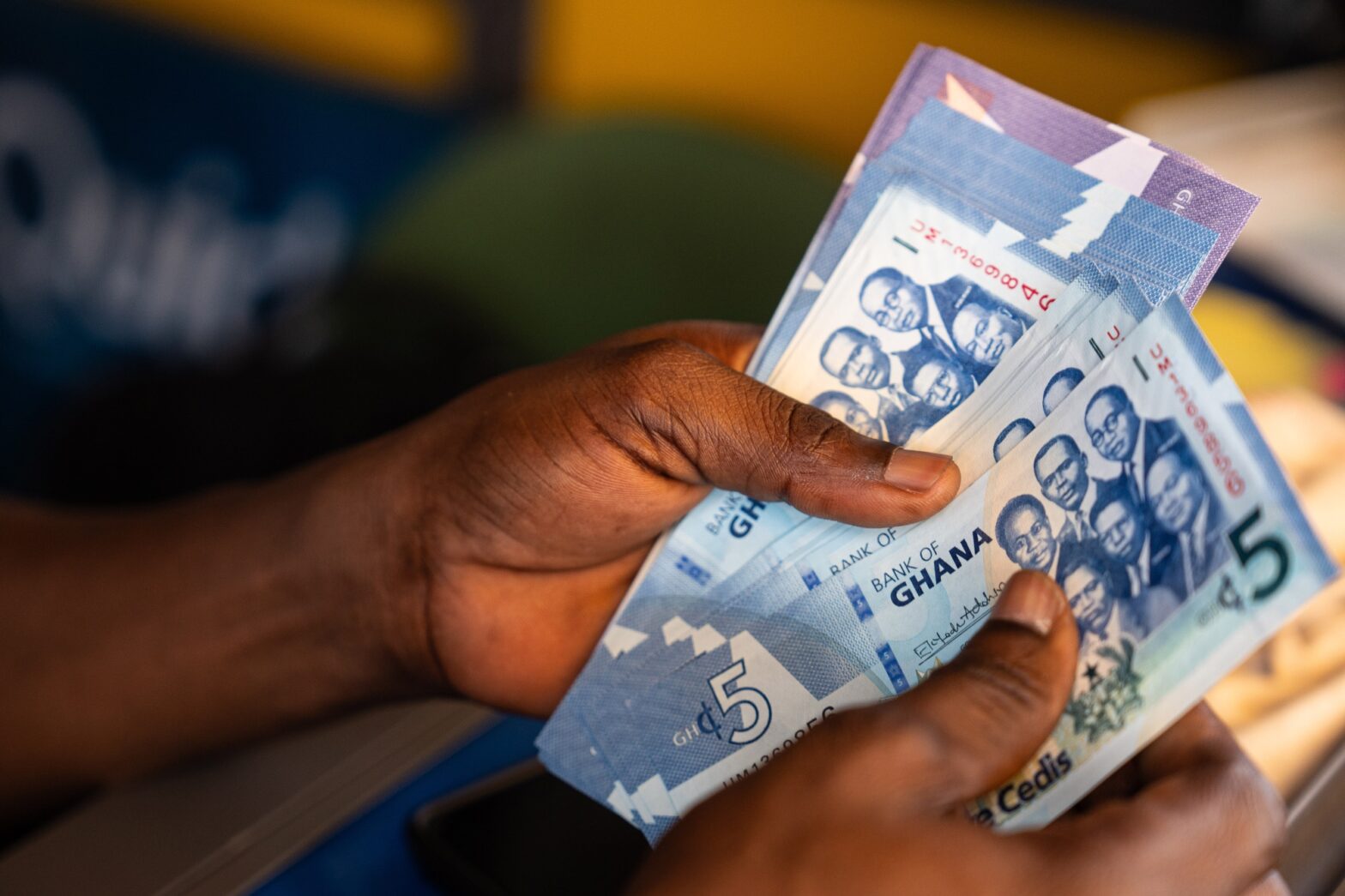
Ghana announced the successful distribution of $ 909 million interest payment to DDEP bond holders. The move is expected to renew investor confidence in Ghana’s fiscal capacity as the country prepares to re-enter the domestic bond market.
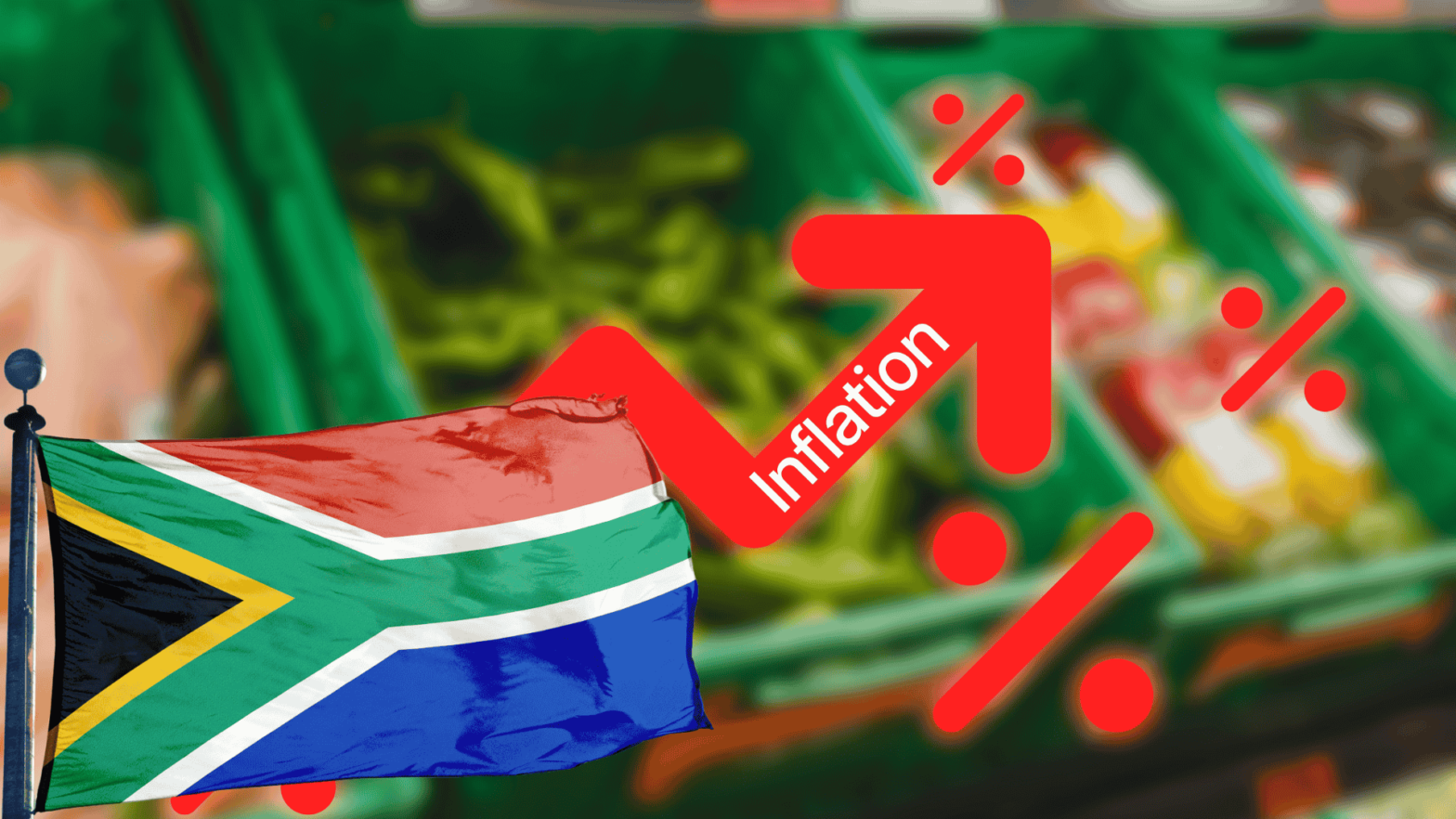
Although South African consumers saw a slight reprieve in January as the annual inflation rate edged down to 3.5%, Inflation has slowed less than expected leading to speculation among traders that the Central Bank might not resume interest rate cutting by March 2026.

Senegal secures funding to repay $485m Eurobond dues, sparking a bond rally but raising concerns over rising short-term borrowing risks.
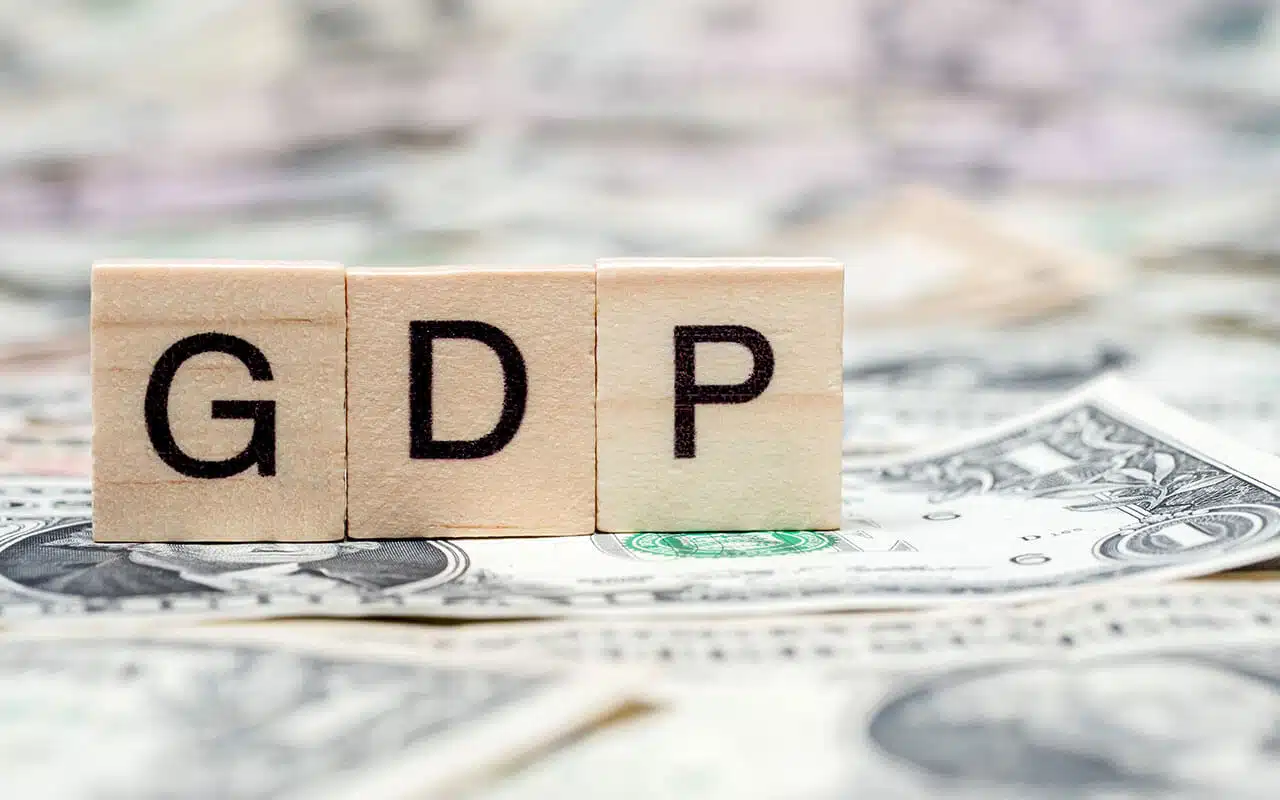
The updated demographic data places GDP per capita at about $1,207 in 2023 and roughly $1,281 in 2024. In 2025, sustained economic growth, estimated at 6%, and a gradual easing in population growth pushed the indicator beyond $1,300.

The marginal 0.05-percentage-point decline reflects a continued trend of disinflation and widens the scope for a rate cut decision when policymakers meet next week.

In a statement issued last Friday, the Washington-based lender said the package will fund an initial response plan aimed at supporting around 40,000 households affected by Cyclones Fytia and Gezani. Sector-specific measures are also underway.
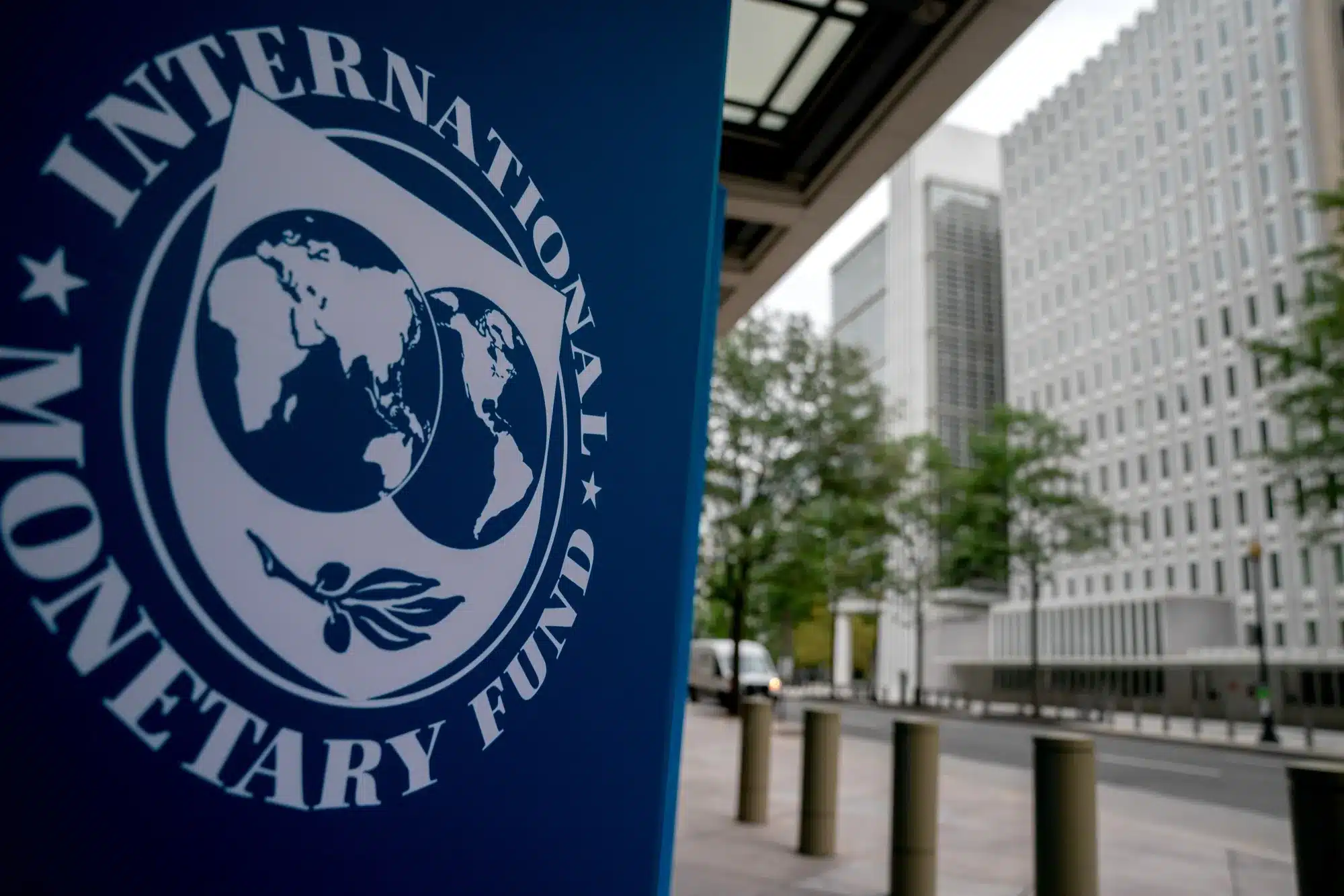
African governments are borrowing to drive growth, but rising debt costs and weak revenues are forcing tougher fiscal rules and sharper trade-offs between stability and development.

The new agreement adds to growing financial backing from multilateral lenders as Ethiopia pushes ahead with reforms under a programme backed by the International Monetary Fund.

The 75 basis points cut to 13.50%, defies market expectations for a more modest reduction to 14.00% amid fast-falling price pressures.

Kofi Abunu says unreliable power and diesel reliance are embedding energy costs across storage, processing and distribution, keeping Nigerian food prices elevated.
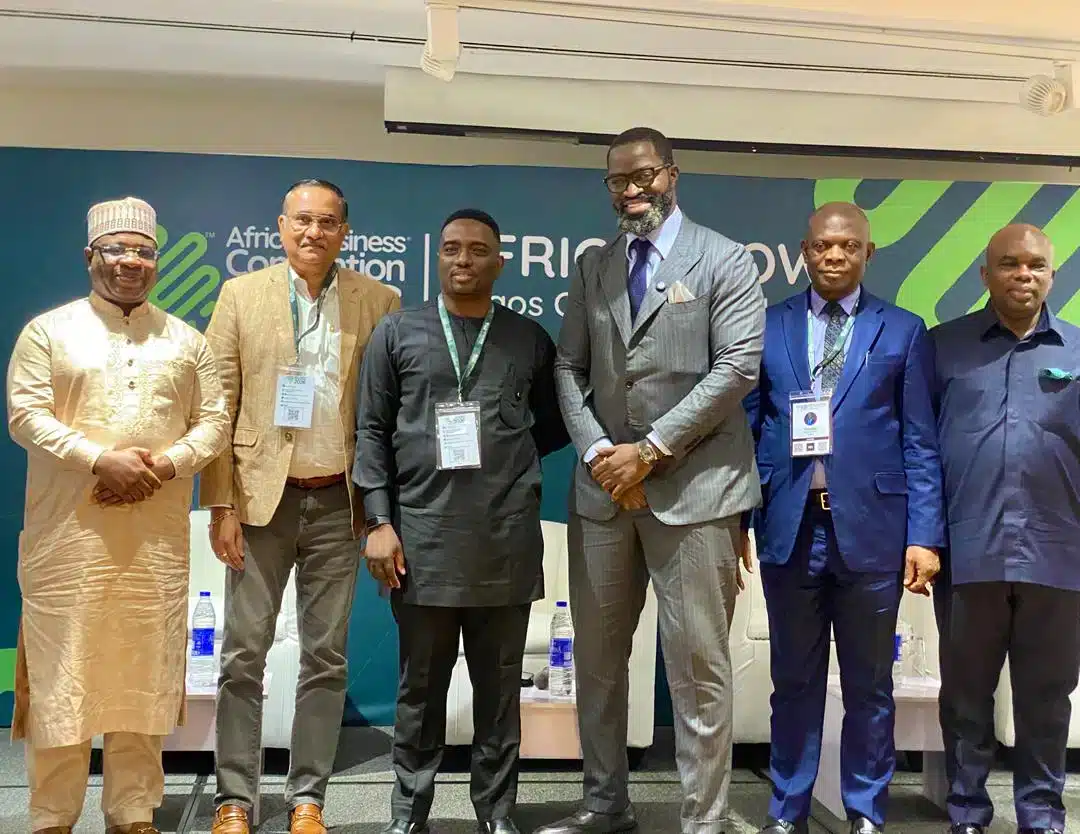
At Lagos’ Africa Business Convention, the real debate wasn’t ambition but whether Africa’s financial infrastructure can turn ideas into investable, cross-border scale. At scale now

Egypt’s inflation rate slowed for the first time in two months in January, mirroring trends in Ghana and Kenya and strengthening expectations that the central bank may deliver another interest-rate cut later this week.

Overall, business momentum eased across most of the reviewed markets in January, with seven of the eight economies registering a softer PMI reading compared with December, except South Africa.
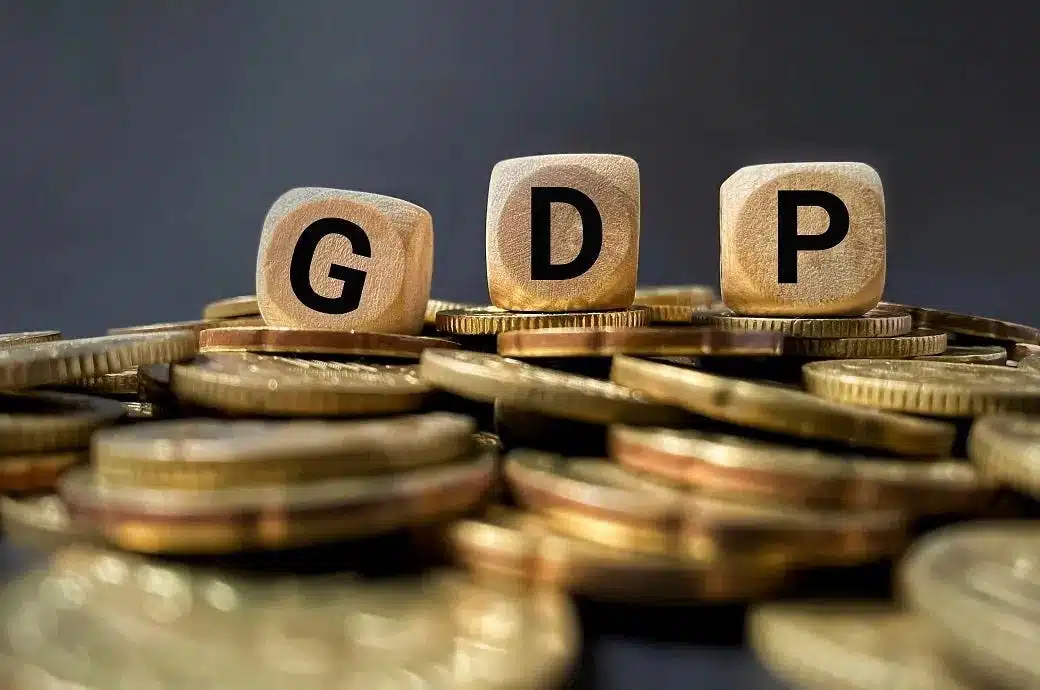
The projected slowdown comes even as macroeconomic conditions stabilise and investor sentiment improves amid ongoing reforms in West Africa’s largest economies.

While overall conditions continued to improve, firms reported weaker gains in employment and purchasing activity, reflecting slower order inflows, a drawdown in backlogs and concerns about excess inputs.
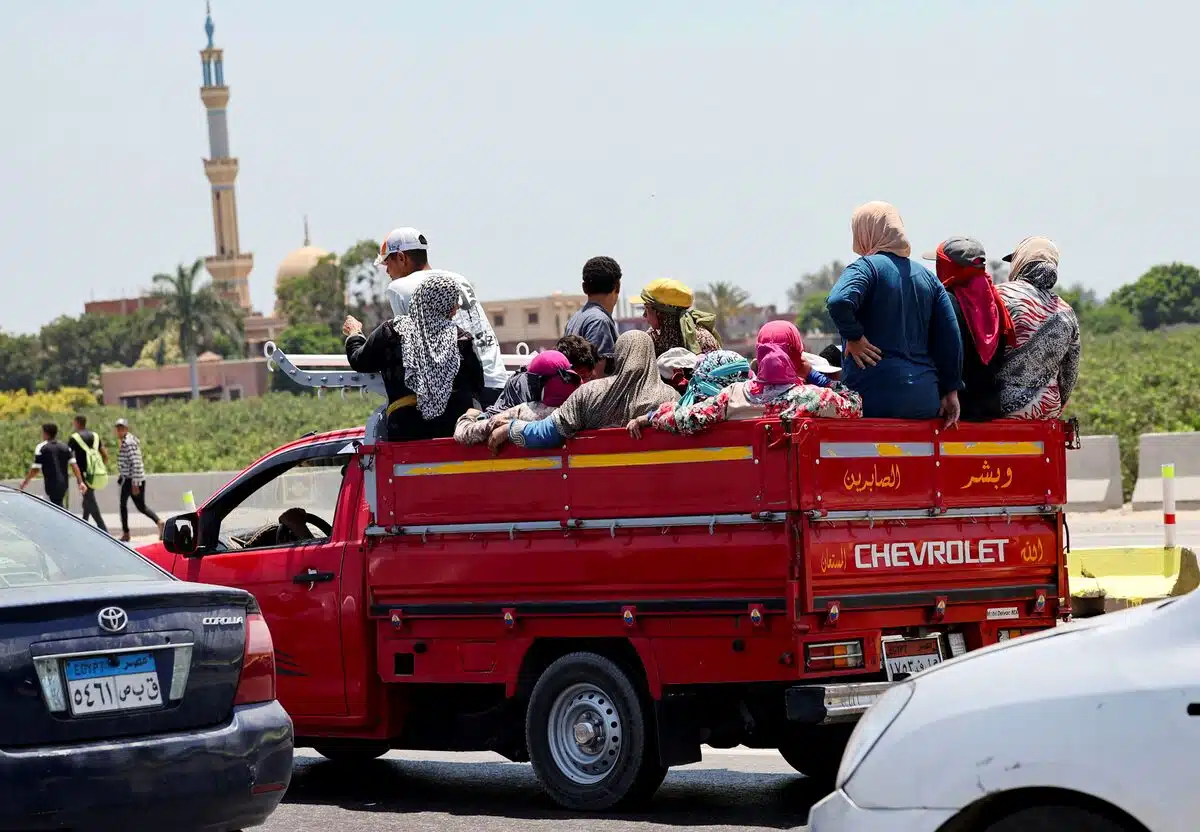
While Egypt’s PMI fell into contractionary territory in January, S&P noted that the reading remained higher than the long-run average, indicative of a strong pace of non-oil GDP growth.

The tool, developed by the Alliance of African Multilateral Financial Institutions (AAMFI), is intended to help regions lenders coordinate support for countries under strain and reduce the risk of protracted disputes during debt restructurings.
Leverage how money works in Africa
Get exclusive insights across banking, payments, and technology to gain a competitive advantage in Africa’s financial sector.

